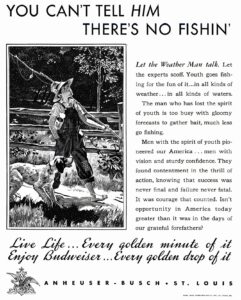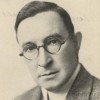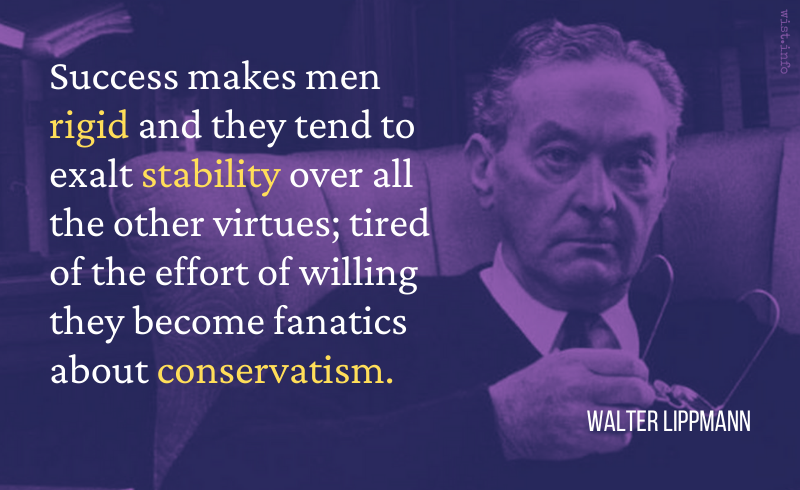If well thou hast begun, go on fore-right
It is the end that crowns us, not the fight.
Quotations about:
success
Note not all quotations have been tagged, so Search may find additional quotes on this topic.
One should guard against preaching to the young man success in the customary sense as the aim of life. For a successful man is he who receives a great deal from this fellowmen, usually incomparably more than corresponds to his service to them. The value of a man, however, should be seen what he gives. and not in what he is able to receive.
Albert Einstein (1879-1955) German-American physicist
Speech (1936-10-15), Convocation of University of New York, Albany [tr. Arronet]
(Source)
Collected in "On Education" (1936), Out of My Later Years, ch. 9 (1950).
It takes a grate deal of money tew make a man ritch, but it don’t take but little virtew.
[It takes a great deal of money to make a man rich, but it doesn’t take but little virtue.]
Josh Billings (1818-1885) American humorist, aphorist [pseud. of Henry Wheeler Shaw]
Everybody’s Friend, Or; Josh Billing’s Encyclopedia and Proverbial Philosophy of Wit and Humor, ch. 144 “Affurisms: Gnats” (1874)
(Source)
By diligence and patience, the mouse bit in two the cable.
Benjamin Franklin (1706-1790) American statesman, scientist, philosopher, aphorist
Poor Richard (1735 ed.)
(Source)
A good education is not so much one which prepares a man to succeed in the world, as one which enables him to sustain a failure.
Bernard Iddings Bell (1886-1958) American author, Episcopal priest, chaplain, academic, lecturer
“Know How vs. Know Why,” Life Magazine (1950-10-16)
(Source)
Getting what you go after is success; but liking it while you are getting it is happiness.
Bertha Damon (1881-1975) American humorist, author, lecturer, editor [Bertha Clark Pope Damon]
A Sense of Humus, ch. 13 “Garden Sass” (1943)
(Source)
I do not think military readiness, in itself, will defeat Communism. I do not think we can consider the job finished with that. I think it buys us time to do the bigger job. We must demonstrate that it is possible to overcome poverty, misery and decay by democratic means, and that we must ourselves believe, and must show others, that our American tradition of the dignity and liberty of the individual is not a luxury for easy times but is the basic source of strength and security of a successful society.
Jane Jacobs (1916-2006) American-Canadian journalist, author, urban theorist, activist
“No Virtue in Meek Conformity” (1952)
(Source)
Foreword to her response to a State Department Loyalty Security Board interrogatory (1952-03-25). Reprinted in Vital Little Plans (2016).
In order to be well received, an actor need not be on stage all the way through the play, as long as he performs satisfactorily in the scenes in which his character appears. In the same way, a wise man need not feel that he must loiter to the very end of the very last act. To demonstrate virtue and excellent character, a short life is long enough.
[Neque enim histrioni, ut placeat, peragenda fabula est, modo in quocunque fuerit actu probetur; neque sapientibus usque ad “Plaudite” veniendum est. Breve enim tempus aetatis satis longum est ad bene honesteque vivendum.]Marcus Tullius Cicero (106-43 BC) Roman orator, statesman, philosopher
De Senectute [Cato Maior; On Old Age], ch. 19 / sec. 70 (19.70) (44 BC) [tr. Cobbold (2012)]
(Source)
Many older translators refer to the plaudite, which was was the last word of many Latin plays, particularly those of Terence and Plautus. It was basically a formal cue for the audience to applaud. Waiting for the plaudite is the same as waiting for the end of the play, the fall of the curtain.
(Source (Latin)). Alternate translations:
I wolde that ye knowe that as the poete makith not onely by versys of a fable in his comedye callid an enterlude to the intente bycause that it please to hym that pleyeth it in the game. But the poete makith onely his comedye and enterlude to the ende bycause that in every pagent he be preysed and commended of every man aftir his playe. And the wise man also ought not to desire to lyve tylle that he saye "That is to witt I will no lenger of my life." For a short and a litle tyme of age is long for to lyve wele and honestly.
[tr. Worcester/Worcester/Scrope (1481)]
For he that is a stage-player needeth not of necessity to be an actor in the interlude or comedy until the last end thereof (to delight the beholders), but in what act of the same soever he playeth or chanceth to be, he must so expressly handle and play his part, that he may win praise and commendation; neither should a wise man live till the plaudite be stricken up. For a short space and time of life is long enough to live well and honestly, and in whatsoever age we be in, it is sufficient to have lived therein godly and virtuously.
[tr. Newton (1569)]
For a good actor is not applauded in the midst of a Scene, so a wise mans praise comes not till the end. The time of our age is short indeed; but long enough to live well and honestly.
[tr. Austin (1648), ch. 21]
When a good Actor doth his part present,
In ev'ry Act he our attention draws,
That at the last he may find just applause,
So (though but short) yet we must learn the art
Of virtue, on this Stage to act our part;
True wisdome must our actions so direct,
Not only the last Plaudite to expect.
[tr. Denham (1669)]
A short Space of time is long enough, if constantly employed in the Pursuit of Honour and Virtue.
[tr. Hemming (1716)]
And as the Player may be applauded in every Scene, tho' to give true Satisfaction he must finish his Play; so with the wise Man, he lives approv'd by all till his last Plaudit. For the time of Man's life is short, yet it is long enough to live well.
[tr. J. D. (1744)]
No Man expects of any one Actor on the Theatre, that he should perform all the Parts of the Piece himself: One Role only is committed to him, and whatever that be, if he acts it well, he is applauded. In the same Manner, it is not the Part of a wise Man, to desire to be busy in these Scenes to the last Plaudit. A short Term may be long enough to live it well and honourably.
[tr. Logan (1744)]
It is in life as on the stage, where it is not necessary in order to be approved, that the actor's part should continue to the conclusion of the drama; it is sufficient, in whatever scene he shall make his final exit, that he supports the character assigned him with deserved applause. The truth is, a small portion of time is abundantly adequate to the purposes of honour and virtue.
[tr. Melmoth (1773)]
For neither must a play be gone all through by a player, that he may please; it is only needful that he be approved in whatsoever act he shall have been; nor should a wise man live quite to Plaudite. For a short space of time is long enough to live virtuously and honourably.
[Cornish Bros. ed. (1847)]
For neither need the drama be performed entire by the actor, in order to give satisfaction, provided he be approved in whatever act he may be: nor need the wise man live till the plaudite. For the short period of life is long enough for living well and honourably.
[tr. Edmonds (1874)]
In order to give pleasure to the audience, the actor need not finish the play; he may win approval in whatever act he takes part in; nor need the wise man remain on the stage till the closing plaudit. A brief time is long enough to live well and honorably.
[tr. Peabody (1884)]
An actor, in order to earn approval, is not bound to perform the play from beginning to end; let him only satisfy the audience in whatever act he appears. Nor need a wise man go on to the concluding "plaudite." For a short term of life is long enough for living well and honourably.
[tr. Shuckburgh (1895)]
Our span of life is brief, but it is long enough for us to live well and honestly.
[ed. Harbottle (1906)]
Why ev'n the actor to secure applause
Need not play to the end: if but he do
His best, he will be cheered: if wise, he'll stop
Before he reach the final "Plaudite."
A little time's enough, in which to live
A good and honest life.
[tr. Allison (1916)]
The actor, for instance, to please his audience need not appear in every act to the very end; it is enough if he is approved in the parts in which he plays; and so it is not necessary for the wise man to stay on this mortal stage to the last fall of the curtain. For even if the allotted space of life be short, it is long enough in which to live honourably and well.
[tr. Falconer (1923)]
An actor, in order to find favor, does not have to take part all the way through a play; he need only prove himself in any act in which he may appear; similarly the wise and good man does not have to keep going until the curtain is rung down. A brief span of years is quite long enough for living a good and honorable life.
[tr. Copley (1967)]
An actor does not have to appear in the last part of the movie: he can earn good reviews from what he does in any part of it. And neither must life be drawn out until some venerable time for the final curtain. A short time of life is enough to live well and honorably.
[tr. Gerberding (2014)]
During a drama an actor has no need
To be cheered but in the parts he plays
while on the stage of mortal life, indeed,
A man of discernment never stays
Until the last applause. A short life is always
Long enough to be lived honestly and well.
[tr. Bozzi (2015)]
An actor does not need to remain on stage throughout the play. It is enough that he appears in the appropriate acts. Likewise, a wise man need not stay on the stage of this world until the audience applauds at the end. The time allotted to our lives may be short, but it is long enough to live honestly and decently.
[tr. Freeman (2016)]
That’s all there is to success is satisfaction.
And Man in portions can foresee
His own funereal destiny;
His wretchedness, and his resistance,
And his sad unallied existence:
To which his Spirit may oppose
Itself — and equal to all woes,
And a firm will, and a deep sense,
Which even in torture can decry
Its own concenter’d recompense,
Triumphant where it dares defy,
And making Death a Victory.
In our time we have come to live with moments of great crisis. Our lives have been marked with debate about great issues; issues of war and peace, issues of prosperity and depression. But rarely in any time does an issue lay bare the secret heart of America itself. Rarely are we met with a challenge, not to our growth or abundance, our welfare or our security, but rather to the values and the purposes and the meaning of our beloved Nation.
The issue of equal rights for American Negroes is such an issue. And should we defeat every enemy, should we double our wealth and conquer the stars, and still be unequal to this issue, then we will have failed as a people and as a nation.Lyndon B. Johnson (1908-1973) American politician, educator, US President (1963-69)
Speech (1965-03-15), “The American Promise,” Joint Session of Congress [06:27]
(Source)
It is not worth living,
when we see bad men unjustly honored.
[ου γαρ άξιον λεύσσειν φάος κακούς ορώντας εκδίκως τιμωμένους.]Euripides (485?-406? BC) Greek tragic dramatist
Bellerophon [Βελλεροφῶν], frag. 293 (c. 430 BC) [tr. Collard (1997)]
(Source)
Nauck (TGF) frag. 293, Barnes frag. 129, Musgrave frag. 23. (Source (Greek)). Alternate translations:
For life's not worth retaining when we see
The wicked crown'd with undeserv'd applause.
[tr. Wodhull (1809)]
It is not worth living, if people see bad men unjustly honored.
[tr. Collard, Hargreaves, Cropp (1995)]
Life has no value when the bad are seen to thrive unjustly.
[tr. Stevens (2012)]
If all public questions were settled by shooting dice, fifty percent of them would be settled correctly. This would be five times as good a score as we make now.
H. L. Mencken (1880-1956) American writer and journalist [Henry Lewis Mencken]
A Little Book in C Major, ch. 3, § 19 (1916)
(Source)
Success is going from failure to failure without losing your enthusiasm.
Winston Churchill (1874-1965) British statesman and author
(Spurious)
Widely attributed to Churchill, but not found in his writings or contemporary reports of his speech. It's also attributed to Abraham Lincoln, with similar lack of provenance.
Variants:More information about this quotation:
- "Success is the ability to move from one failure to another without loss of enthusiasm."
- "Courage is going from failure to failure without losing enthusiasm."
- "To succeed is to fail repeatedly, but without losing enthusiasm."
Take then good note of it. Nothing is too small. I counsel you, put down in record even your doubts and surmises. Hereafter it may be of interest to you to see how true you guess. We learn from failure, not from success!
Abraham "Bram" Stoker (1847-1912) Irish author, theater manager, journalist
Dracula, ch. 10, Dr. Seward’s Diary, 7 September [Abraham Van Helsing] (1897)
(Source)
You have reached the pinnacle of success as soon as you become uninterested in money, compliments, or publicity.
Orlando A. Battista (1917-1995) Canadian-American chemist, aphorist
Quotoons: A Speaker’s Dictionary, No. 3962 (1977 ed.)
(Source)
Often misattributed to Thomas Wolfe. More discussion about the origin of quotation: You Have Reached the Pinnacle of Success as Soon as You Become Uninterested in Money, Compliments, or Publicity – Quote Investigator®.
Fortune sumtimes shows us the way, but it iz energy that achieves sucksess.
[Fortune sometimes shows us the way, but it is energy that achieves success.]
Josh Billings (1818-1885) American humorist, aphorist [pseud. of Henry Wheeler Shaw]
Everybody’s Friend, Or; Josh Billing’s Encyclopedia and Proverbial Philosophy of Wit and Humor, ch. 131 “Affurisms: Plum Pits (1)” (1874)
(Source)
Even within the university world, where the highest calling should be to spark the fires of intellectual exploration and to prepare young minds for engaged and productive participation in our democracy, the mandates of the market have attained prominence. The narrow quest for success crowds out the noble effort to be great — greatness understood as using one’s success to make the world a better place for all.
Cornel West (b. 1953) American philosopher, political activist, social critic
Democracy Matters, ch. 6 (2004)
(Source)
A successful man is simply one who doesn’t make a fool of himself in the same way more than two or three times running.
H. L. Mencken (1880-1956) American writer and journalist [Henry Lewis Mencken]
A Little Book in C Major, ch. 3, § 5 (1916)
(Source)
Doth any man assert that there are Gods
In Heaven? I answer there are none: let him
Who contradicts me like a fool, no longer
Quote ancient fables; but observe the fact,
Nor to my words give credence. Kings, I say.
Kill many, but rob more of their possessions.
And violating every sacred oath,
Lay waste whole cities; yet, tho’ they act thus,
Are more successful far than they who lead
In constant piety a tranquil life.[φησίν τις εἶναι δῆτ’ ἐν οὐρανῷ θεούς;
οὐκ εἰσίν, οὐκ εἴσ’, εἴ τις ἀνθρώπων θέλει
μὴ τῷ παλαιῷ μῶρος ὢν χρῆσθαι λόγῳ.
σκέψασθε δ’ αὐτοί, μὴ ἐπὶ τοῖς ἐμοῖς λόγοις
γνώμην ἔχοντες. φήμ’ ἐγὼ τυραννίδα
κτείνειν τε πλείστους κτημάτων τ’ ἀποστερεῖν
ὅρκους τε παραβαίνοντας ἐκπορθεῖν πόλεις·
καὶ ταῦτα δρῶντες μᾶλλόν εἰσ’ εὐδαίμονες
τῶν εὐσεβούντων ἡσυχῇ καθ’ ἡμέραν]Euripides (485?-406? BC) Greek tragic dramatist
Bellerophon [Βελλεροφῶν], frag. 286 (TGF) (c. 430 BC) [tr. Wodhull (1809)]
(Source)
Nauck (TGF) frag. 286, Barnes frag. 8, Musgrave frag. 25. (Source (Greek)). Alternate translations:
Doth some one say that there be gods above?
There are not; no, there are not. Let no fool,
Led by the old false fable, thus deceive you.
Look at the facts themselves, yielding my words
No undue credence: for I say that kings
Kill, rob, break oaths, lay cities waste by fraud,
And doing thus are happier than those
Who live calm pious lives day after day. All divinity
Is built-up from our good and evil luck.
[tr. Symonds (1876)]
Does someone say there are indeed gods in heaven? There are not, there are not, if a man is willing not to rely foolishly on the antiquated reasoning. Consider for yourselves, do not base your opinion on words of mine. I say myself that tyranny kills very many men and dprives them of their possessions; and that tyrants break their oaths to ransack cities, and in doing this they are more prosperous under heaven than men who live quietly in reverence.
[tr. Collard, Hargreaves, Cropp (1995)]
Does anyone assert that there are gods in heaven? There are not, no, there are not, if a man is ready not to swallow whole the old tales. Think it through yourselves, do not make my words the foundation of your opinion. I declare that tyranny kills many, robs them, that tyrants break their oaths to plunder cities, yet in this they prosper more than those whose unassuming habit is true piety.
[tr. Stevens (2012)]
Does anyone say there are gods in heaven? There are not, there are not, unless one wishes to follow ancient wisdom like a fool. [...] I say that tyranny kills many people, deprives possessions, circumvents oaths, and plunders cities. And even though they do these things, they are more fortunate than those living piously day to day in peace.
[tr. Dixon (2014)]
Is there anyone who thinks there are gods in heaven?
There are not. There are not, for any man who wishes
Not to be a fool and trust some ancient story.
Look at it yourselves, don’t make up your mind
Because of my words. I think that tyranny
Kills so many men and steals their possessions
And that men break their oaths by sacking cities.
But the men who do such things are more fortunate
Than those who live each day piously, at peace.
[tr. @sentantiq (2015)]
People ask: Do gods really exist in heaven? No, they do not exist, they really don’t; if any of mankind wishes to avoid being the sort of fool who follows the ancient story. Consider it for yourselves, don’t take my word for it. I say that tyranny destroys multitudes and confiscates their possessions; oath-breakers sack cities; and yet, those who do such things are far more prosperous than those who, day by day, live devoutly and in peace.
[tr. Emerson]
All you need in this life is ignorance and confidence; then success is sure.
Mark Twain (1835-1910) American writer [pseud. of Samuel Clemens]
Letter to Mrs. Foote (1887-12-02)
(Source)
First reprinted, upon the letter's rediscovery, in The Los Angeles Times (1930-03-16). A facsimile of the discovered letter (with the above punctuation) can be found in B. DeCasseres, When Huck Finn Went Highbrow (1934).
For more discussion about this quotation's origin: All You Need In This Life Is Ignorance and Confidence; Then Success Is Sure – Quote Investigator®.
If one burdens the future with one’s worries, it cannot grow organically. I am filled with confidence, not that I shall succeed in worldly things, but that even when things go badly for me I shall still find life good and worth living.
Esther "Etty" Hillesum (1914-1943) Dutch Jewish law graduate, writer, diarist
Diary (1942-06-11)
(Source)
Collected in An Interrupted Life [Het Verstoorde Leven] (1981) [tr. Pomerans (1983)].
For Freedom’s battle once begun,
Bequeathed by bleeding Sire to Son,
Though baffled oft is ever won.
A vast deal may be done by those who dare to act.
Blest is the man who cheats the stormy sea
And safely moors beside the sheltering quay;
So, blest is he who triumphs over trial.
One man, by various means, in wealth or strength
Outdoes his neighbour; hope in a thousand hearts
Colours a thousand different dreams; at length
Some find a dear fulfilment, some denial.
But this I say,
That he who best
Enjoys each passing day
Is truly blest.[εὐδαίμων μὲν ὃς ἐκ θαλάσσας
ἔφυγε χεῖμα, λιμένα δ᾽ ἔκιχεν:
εὐδαίμων δ᾽ ὃς ὕπερθε μόχθων
ἐγένεθ᾽: ἑτέρᾳ δ᾽ ἕτερος ἕτερον
ὄλβῳ καὶ δυνάμει παρῆλθεν.
μυρίαι δ᾽ ἔτι μυρίοις
εἰσὶν ἐλπίδες: αἳ μὲν
τελευτῶσιν ἐν ὄλβῳ
βροτοῖς, αἳ δ᾽ ἀπέβησαν:
τὸ δὲ κατ᾽ ἦμαρ ὅτῳ βίοτος
εὐδαίμων, μακαρίζω.]Euripides (485?-406? BC) Greek tragic dramatist
Bacchæ [Βάκχαι], l. 902ff (Stasimon 3, Epode) [Chorus/Χορός] (405 BC) [tr. Vellacott (1973)]
(Source)
(Source (Greek)). Alternate translations:
Blest is the man who 'scapes the stormy wave.
And in the harbour finds repose:
He too is blest, 'midst dangers brave,
Who soars above the malice of his foes:
And now these, now those possess
Superior talents or success;
Distinct their aims; but hope each bosom fires.
There are, a rich encrease who find,
The vows of some are scatter'd in the wind:
But in my judgement blest are they
Who taste, tho' only for the day.
The joys their soul desires.
[tr. Wodhull (1809)]
Happy is he who has fled a storm on the sea, and reached harbor. Happy too is he who has overcome his hardships. One surpass another in different ways, in wealth or power. There are innumerable hopes to innumerable men, and some result in wealth to mortals, while others fail. But I call him blessed whose life is happy day today.
[tr. Buckley (1850)]
Who hath 'scaped the turbulent sea,
And reached the haven, happy he!
Happy he whose toils are o'er
In the race of wealth and power!
This one her, and that one there,
Passes by, and everywhere
Still expectant thousands over
Thousands hopes are seen to hover,
Some to mortals end in bliss;
Some have already fled away:
Happiness alone is his
That happy is to-day.
[tr. Milman (1865)]
Happy he, who from the storm,
Has the breaker escaped, and the harbour has reached;
Happy he who after toil
Is the victor, for many the ways in which man
Wins him power, and wins him wealth.
Thousand-fold ever to thousands of men,
Hope follows upon hope,
With some it grows unceasingly,
With some it wastes to nothingness.
But he whose life is ever fresh,
Lives in unbroken happiness.
[tr. Rogers (1872), l. 865ff.]
Happy is he who hath escaped the wave from out the sea, and reached the haven; and happy he who hath triumphed o’er his troubles; though one surpasses another in wealth and power; yet there be myriad hopes for all the myriad minds; some end in happiness for man, and others come to naught; but him, whose life from day to day is blest, I deem a happy man.
[tr. Coleridge (1891)]
Blest who from ravening seas
Hath 'scaped to haven-peace,
Blest who hath triumphed in endeavour's toil and throe.
This man to higher height
Attains, of wealth, of might,
Than that; yet myriad hopes in myriad hearts still glow:
To fair fruition brought
Are some, some come to nought:
Happy is he whose bliss from day to day doth grow.
[tr. Way (1898)]
Happy he, on the weary sea
Who hath fled the tempest and won the haven.
Happy whoso hath risen, free,
Above his striving. For strangely graven
Is the orb of life, that one and another
In gold and power may outpass his brother.
And men in their millions float and flow
And seethe with a million hopes as leaven;
And they win their Will, or they miss their Will,
And the hopes are dead or are pined for still;
But whoe'er can know,
As the long days go,
That To Live is happy, hath found his Heaven!
[tr. Murray (1902)]
-- Blessèd is he who escapes the storm at sea,
who comes home to his harbor.
-- Blessèd is he who emerges from under affliction.
-- In various ways one man outraces another in the race for wealth and power.
-- Ten thousand men possess ten thousand hopes.
-- A few bear fruit in happiness; the others go awry.
-- But he who garners day by day the good of life, he is happiest. Blessèd is he.
[tr. Arrowsmith (1960)]
Happy the man who from the sea
escapes the storm and finds harbor;
happy he who has surmounted
toils; and in different ways one surpasses another
in prosperity and power.
Besides this, for countless men there are countless
hopes -- some of them
reach to the end in prosperity
for mortals, and others depart;
but him whose life day by day
is happy do I count blessed.
[tr. Kirk (1970)]
Happy he from the sea escaping
out of the storm, arriving at anchorage;
happy he fleeing labour's straining;
in many manners may men surpass other men
in prosperity and in power.
Thousand-fold upon thousand-fold
hopes come crowding upon us,
and some finally prosper
for mortals, some are vanish'd:
who day by day has a livelihood of happiness, he is blessed
[tr. Neuburg (1988)]
Happy the man who withstands
life's assaults.
Somehow, in some way, some man surpasses some other
in position and fortune.
For millions of men there are millions of hopes.
For some, these ripen into happiness,
for others into nothing.
Count lucky the man who is happy on this one day.
[tr. Cacoyannis (1982)]
That man is blessed who fled the storm
At sea and reached the bay.
And he is blessed who rose above
His toil. In various ways
One man outstrips in wealth and power
Another: countless men
Have countless hopes: some end in joy,
But others drift way.
The man who day to day has luck
In life -- that man I bless.
[tr. Blessington (1993)]
Happy the man who escapes
the storm at sea and reaches harbor.
Happy, too, is he who overcomes
his toils. And in different ways one man
surpasses another in prosperity and power.
Besides, countless are the hopes
of countless men, Some of those hopes
end in prosperity for mortals, others vanish.
But I count him blessed whose life,
from day to day, is happy.
[tr. Esposito (1998)]
Happy the man who has come away
safe on the beach from a storm at sea,
happy the man who has risen above
trouble and toil. Many are the ways
one man may surpass another
in wealth or power,
and beyond each hope there beckons another
hope without number.
Hope may lead a man to wealth,
hope may pass away;
but I admire a man when he
is happy in an ordinary life.
[tr. Woodruff (1999)]
Happy is he who escapes
A storm at sea and finds safe harbor.
Happy is he who has risen above
Great toils. In different ways,
Some persons outdo others
In their wealth and power.
And hopes are as many as those who hope --
Some will end in rich reward, others in nothing.
But those whose lives are happy
Day by day -- those
I call the blesséd.
[tr. Gibbons/Segal (2000)]
Blessed is he that out of the sea
escapes the storm and wins the harbor;
blessed he who triumphs over
trouble: one man surpasses another
in respect to wealth or power.
Furthermore, in countless hearts
there live countless hopes, some
ending in good fortune,
though some vanish away.
But the man whose life today is happy,
him I count blessed.
[tr. Kovacs (2002)]
Joy of the storm endured,
And the harbour safely reached.
Joy of hardship overcome.
Joy of striving for wealth and power.
Joy of hope. Joy of dreams,
Fulfilled or unfulfilled.
And most blessed they who takes their joy
In the simple detail of the day by day --
[tr. Teevan (2002)]
Happy is the man who has escaped the storms of life’s angry seas and found a harbour; and happy is the man who have endured those storms.
Men are infinite in number and their hopes have no end and some of these hopes bring joy to some and nothing to others.
I say blessed is the man whose life has been happy -- so far.
These are useful pieces of advice. True wisdom.
[tr. Theodoridis (2005)]
Blessed is the one who's fled the
Storm at sea and come to harbour;
And happy is he who rises above
Hardships; for one may sur-
Pass another in wealth or in power,
But these are a lot hopes to a lot of
Different people; and many end in
Happiness while others fail mis’rably
But the one who's happy day-to-day,
Is the one who's truly blessed.
[tr. Valerie (2005)]
Whoever has escaped a storm at sea
is a happy man in harbour,
whoever overcomes great hardship
is likewise another happy man.
Various men outdo each other
in wealth, in power,
in all sorts of ways.
The hopes of countless men
are infinite in number.
Some make men rich;
some come to nothing,
So I consider that man blessed
who lives a happy life
existing day by day.
[tr. Johnston (2008), l. 1106ff]
Lucky is the man who escapes a storm at sea
and finds his way home to safe harbour --
the man delivered from hardship.
We all compete for wealth and power,
and for every thousand hearts a thousand hopes.
Some wither, some bear fruit.
But the one who lives from day to day,
finding good where he can:
he is happy --
he is a lucky man.
[tr. Robertson (2014)]
Fortunate is the one who flees
The swell of the sea and returns to harbor.
Fortunate is the one who survives through troubles.
One is greater than another in different things,
He surpasses in fortune and power --
But in numberless hearts still
Are numberless hopes: some result
In good fortune, but other mortal dreams
Just disappear.
Whoever has a happy life to-day,
I consider fortunate.
[tr. @sentantiq (2018)]
Happy is the one who escapes a sea-storm
and comes home to the harbor.
And happy is the one who stands against their hardships.
Happy are they who endure.
One man may exceed another, in his own way.
In wealth.
In power.
Countless hopes for yet-more-countless people.
Sometimes hope wins out, gives us riches --
And sometimes it doesn’t. Sometimes we fail.
But the one who can live in spite of this,
who is happy day to day.
That one is blessed.
[tr. Pauly (2019)]
Blessed is the one who finds a harbour safe from the winter sea. Blessed is the one who travels beyond affliction. Blessed is the one who wins great joy. Numberless more have their dreams. Some hopes are fulfilled, some vanish. Whoever lives happily from day to day I bless.
[tr. Behr/Foster (2019)]
Fortunate [eudaimōn] is he who has fled a storm on the sea and reached harbor. Eudaimōn too is he who has overcome his toils. Different people surpass others in various ways, be it in wealth [olbos] or in power. Mortals have innumerable hopes, and some come to telos in prosperity [olbos], while others fail. I deem him blessed whose life is eudaimōn day by day.
[tr. Buckley/Sens/Nagy (2020)]
Do you see the consequences of the way we have chosen to think about success? Because we so profoundly personalize success, we miss opportunities to lift others onto the top rung. […] We are too much in awe of those who succeed and far too dismissive of those who fail. And most of all, we become much too passive. We overlook just how large a role we all play — and by “we” I mean society — in determining who makes it and who doesn’t.
Malcolm Gladwell (b. 1963) Anglo-Canadian journalist, author, public speaker
Outliers: The Story of Success, Part 1, ch. 1 (2008)
(Source)
We are so caught in the myths of the best and the brightest and the self-made that we think outliers spring naturally from the earth. We look at the young Bill Gates and marvel that our world allowed that thirteen-year-old to become a fabulously successful entrepreneur. But that’s the wrong lesson. Our world only allowed one thirteen-year-old unlimited access to a time sharing terminal in 1968. If a million teenagers had been given the same opportunity, how many more Microsofts would we have today?
Malcolm Gladwell (b. 1963) Anglo-Canadian journalist, author, public speaker
Outliers: The Story of Success, Part 2, ch. 9 (2008)
(Source)
Those three things — autonomy, complexity, and a connection between effort and reward — are, most people will agree, the three qualities that work has to have if it is to be satisfying.
Malcolm Gladwell (b. 1963) Anglo-Canadian journalist, author, public speaker
Outliers: The Story of Success, ch. 5, sec. 10 (2008)
(Source)
It is those who are successful, in other words, who are most likely to be given the kinds of special opportunities that lead to further success. It’s the rich who get the biggest tax breaks. It’s the best students who get the best teaching and most attention. And it’s the biggest nine- and ten-year-olds who get the most coaching and practice. Success is the result of what sociologists like to call “accumulative advantage.”
Malcolm Gladwell (b. 1963) Anglo-Canadian journalist, author, public speaker
Outliers: The Story of Success, ch. 1 “The Matthew Effect,” sec. 5 (2008)
(Source)
If you make a great number of predictions, the ones that were wrong will soon be forgotten, and the ones that turn out to be true will make you famous.
Malcolm Gladwell (b. 1963) Anglo-Canadian journalist, author, public speaker
“Dangerous Minds: Criminal Profiling Made Easy,” The New Yorker (12 Nov 2007)
(Source)
I remind young people everywhere I go, one of the worst things the older generation did was to tell them for twenty-five years “Be successful, be successful, be successful” as opposed to “Be great, be great, be great”. There’s a qualitative difference.
I’ve a theory that one can always get anything one wants if one will pay the price. And do you know what the price is, nine times out of ten? Compromise.
Agatha Christie (1890-1976) English writer
The Secret of Chimneys, ch. 22 [Anthony Cade] (1925)
(Source)
HELENA: All’s well that ends well. Still the fine’s the crown.
Whate’er the course, the end is the renown.William Shakespeare (1564-1616) English dramatist and poet
All’s Well That Ends Well, Act 4, sc. 4, l. 39ff (4.4.39-40) (1602?)
(Source)
There must be a beginning of any great matter, but the continuing unto the end until it be thoroughly finished yields the true glory.
Francis Drake (c. 1540-1596) English explorer, sea captain, politician
Letter to Francis Walsingham, from Sagres, Portugal (17 May 1587)
(Source)
I think that the successful genres of a particular period are reflections of the needs and thoughts and social struggles of that time. When you see a bunch of similar projects meeting with success, you’ve found a place in the social landscape where a particular story (or moral or scenario) speaks to readers. You’ve found a place where the things that stories offer are most needed. And since the thing that stories most often offer is comfort, you’ve found someplace rich with anxiety and uncertainty. (That’s what I meant when I said to Melinda Snodgrass that genre is where fears pool.)
Daniel Abraham (b. 1969) American writer [pseud. James S. A. Corey (with Ty Franck), M. L. N. Hanover]
“100 Aspects of Genre: Learning from the Dead and the Dying,” blog entry (19 Oct 2010)
(Source)
Smiting enemies has always been so admired that, unlike medicine or archaeology, it entitled its successful practitioners to become kings, emperors, and presidents of the United States like Washington, Jackson, William Henry Harrison, Taylor, Grant, and Eisenhower.
Success is not final, failure is not fatal: it is the courage to continue that counts.
Winston Churchill (1874-1965) British statesman and author
(Spurious)
(Source)
Variant: "Success is never final and failure never fatal. It’s courage that counts."
Not found in Churchill's canon. There are precursors to elements of this quotation, but the earliest version substantially like it is found in a 1938 Budweiser beer print advertisement:
Men with the spirit of youth pioneered our America ... men with vision and sturdy confidence. They found contentment in the thrill of action, knowing that success was never final and failure never fatal. It was courage that counted. Isn’t opportunity in America today greater than it was in the days of our grateful forefathers?
More discussion about this quotation:
Also attributed to Abraham Lincoln and John Wooden. Preacher Robert Schuller used Success is Never Ending, Failure is Never Final as the title of a 1990 book.
There are two tragedies in life. One is not to get your heart’s desire. The other is to get it.
George Bernard Shaw (1856-1950) British playwright and critic
Man and Superman, Act 4 [Mendoza] (1903)
(Source)
See Wilde, eleven years earlier. More discussion quote: There Are Only Two Tragedies. One Is Not Getting What One Wants, and the Other Is Getting It – Quote Investigator.
In this world there are only two tragedies. One is not getting what one wants, and the other is getting it.
Oscar Wilde (1854-1900) Irish poet, wit, dramatist
Lady Windermere’s Fan, Act 3 [Dumby] (1892)
(Source)
More discussion of this quote: There Are Only Two Tragedies. One Is Not Getting What One Wants, and the Other Is Getting It – Quote Investigator.
Popular success is a palace built for a writer by publishers, journalists, admirers and professional reputation makers, in which a silent army of termites, rats, dry rot and death-watch beetles are tunnelling away, till, at the very moment of completion, it is ready to fall down. The one hope for a writer is that although his enemies are often unseen they are seldom unheard. He must listen for the death-watch, listen for the faint toc-toc, the critic’s truth sharpened by envy, the embarrassed praise of a sincere friend, the silence of gifted contemporaries, the implications of the don in the manger, the visitor in the small hours. He must dismiss the builders and contractors, elude the fans with an assumed name and dark glasses, force his way off the moving staircase, subject every thing he writes to a supreme critical court. Would it amuse Horace or Milton or Swift or Leopardi? Could it be read to Flaubert? Would it be chosen by the Infallible Worm, by the discriminating palates of the dead?
Cyril Connolly (1903-1974) English intellectual, literary critic and writer.
Enemies of Promise, Part 2, ch. 15 “The Slimy Mallows” (1938)
(Source)
Conquer, but never triumph.
[Siege, aber triumphire nicht.]
Marie von Ebner-Eschenbach (1830-1916) Austrian writer
Aphorisms [Aphorismen], No. 9 (1880) [tr. Wister (1883)]
(Source)
(Source (German)). Alternate translation:
Be victorious but not triumphant.
[tr. Scrase/Mieder (1994)]
Power is like money. You can usually get it if you’re competent and it’s the only thing you want in life.
I personally measure success in terms of the contributions an individual makes to her or his fellow human beings.
The man who has done his level best, and who is conscious that he has done his best, is a success.
Success makes men rigid and they tend to exalt stability over all the other virtues; tired of the effort of willing they become fanatics about conservatism.
Walter Lippmann (1889-1974) American journalist and author
A Preface to Politics, ch. 1 (1914)
(Source)
As in the Olympic Games it is not the most attractive and the strongest who are crowned, but those who compete (since it is from this group that winners come), so in life it is those who act rightly who will attain what is noble and good.
[ὥσπερ δ᾽ Ὀλυμπίασιν οὐχ οἱ κάλλιστοι καὶ ἰσχυρότατοι στεφανοῦνται ἀλλ᾽ οἱ ἀγωνιζόμενοι (τούτων γάρ τινες νικῶσιν), οὕτω καὶ τῶν ἐν τῷ βίῳ καλῶν κἀγαθῶν οἱ πράττοντες ὀρθῶς ἐπήβολοι γίνονται.]
Aristotle (384-322 BC) Greek philosopher
Nicomachean Ethics [Ἠθικὰ Νικομάχεια], Book 1, ch. 9 (1.9, 1099a.4) (c. 325 BC) [tr. Crisp (2000)]
(Source)
(Source (Greek)). Alternate translations:
And as at the Olympic games it is not the finest and strongest men who are crowned, but they who enter the lists, for out of these the prize-men are selected; so too in life, of the honourable and the good, it is they who act who rightly win the prizes.
[tr. Chase (1847), ch. 6]
For as at the Olympic games it is not the fairest and the strongest who are crowned, but they that run -- for some of these it is that win the victory -- so too, among the noble and good in life, it is they that act rightly who become masters of life's prize.
[tr. Williams (1869)]
As in the Olympian games it is not the most beautiful and strongest persons who receive the crown, but they who actually enter the lists as combatants -- for it is some of these who become victors -- so it is they who act rightly that attain what is noble and good in life.
[tr. Welldon (1892), ch. 9]
And as at the Olympic games it is not the fairest and strongest who receive the crown, but those who contend (for among these are the victors), so in life, too, the winners are those who not only have all the excellences, but manifest these in deed.
[tr. Peters (1893)]
And as in the Olympic Games it is not the most beautiful and the strongest that are crowned but those who compete (for it is some of these that are victorious), so those who act win, and rightly win, the noble and good things in life.
[tr. Ross (1908)]
And just as at the Olympic games the wreaths of victory are not bestowed upon the handsomest and strongest persons present, but on men who enter for the competitions -- since it is among these that the winners are found, -- so it is those who act rightly who carry off the prizes and good things of life.
[tr. Rackham (1934), ch. 8, sec. 9]
And just as in the Olympic Games it is not the noblest and strongest who get the victory crown but the competitors (since it is among these that the ones who win are found), so also among the noble and good aspects of life it is those who act correctly who win the prizes.
[tr. Reeve (1948)]
And as at the Olympic Games it is not the most beautiful or the strongest who are crowned but those who compete (for it is some of these who become victors), so in life it is those who act rightly who become the winners of good and noble things.
[tr. Apostle (1975), ch. 9]
Just as at the Olympic Games it is not the best-looking or the strongest men present that are crowned with wreaths, but the competitors (because it is from them that the winners come), so it is those who act that rightly win the honors and rewards in life.
[tr. Thomson/Tredennick (1976)]
For just as it is not the noblest and strongest who are crowned with the victory wreath at the Olympic Games but rather the competitors (for it is certain of these who win), so also it is those who act correctly who attain the noble and good things in life.
[tr. Bartlett/Collins (2011)]
To get home you had to end the war. To end the war was the reason you fought it. The only reason.
Paul Fussell (1924-2012) American cultural and literary historian, author, academic
Wartime: Understanding and Behavior in the Second World War, ch. 11 (1989)
(Source)
He is free to make the wrong choice, but not free to succeed with it. He is free to evade reality, he is free to unfocus his mind and stumble blindly down any road he pleases, but not free to avoid the abyss he refuses to see. Knowledge, for any conscious organism, is the means of survival; to a living consciousness, every “is” implies an “ought.” Man is free to choose not to be conscious, but not free to escape the penalty of unconsciousness: destruction. Man is the only living species that has the power to act as his own destroyer — and that is the way he has acted through most of his history.
Ayn Rand (1905-1982) Russian-American writer, philosopher
“The Objectivist Ethics,” University of Wisconsin Symposium on “Ethics in Our Time” (9 Feb 1961)
(Source)
The way you win as a creative person is to learn to love the work and not the applause.
Bob Dylan (b. 1941) American singer, songwriter
(Misattributed)
Attributed to Dylan, but it actually appears to be from an article by Brian Herzog, "Don't Write for Applause" (28 May 2015), which touched on Dylan.
Evil always wins through the strength of its splendid dupes.
Gilbert Keith Chesterton (1874-1936) English journalist and writer
Eugenics and Other Evils, ch. 1 (1922)
(Source)
You ask me how my farm can pay,
Since little it will bear;
It pays me thus — ‘Tis far away
And you are never there.[Quid mini reddat ager quaeris, Line, Nomentanus?
Hoc mini reddit ager: te, Line, non video.]Martial (AD c.39-c.103) Spanish Roman poet, satirist, epigrammatist [Marcus Valerius Martialis]
Epigrams [Epigrammata], Book 2, epigram 38 (2.38) (AD 86) [tr. Pott & Wright (1921)]
(Source)
Original Latin. Alternate translations:
Linus, dost ask what my field yields to me?
Even this profit, that I ne'er see thee.
[tr. Fletcher (1656)]
What my farm yields me, doest thou urge to know?
This, that I see not thee, when there I go.
[tr. Killigrew (1695)]
Do you ask what profit my Nomentan estate brings me, Linus? My estate brings me this profit, that I do not see you, Linus.
[tr. Bohn's Classical (1860)]
Ask you what my Nomentane fields
Can yield me, Linus, bleak and few?
For me my farm this, Linus, yields;--
That, when I'm there, I'm rid of you.
[tr. Webb (1879)]
You ask what I grow on my Sabine estate.
A reliable answer is due.
I grow on that soil --
Far from urban turmoil --
Very happy at not seeing you.
[tr. Nixon (1911)]
Do you ask, Linus, what my Nomentan farm returns me? This my land returns me: I don't see you, Linus.
[tr. Ker (1919)]
You ask of my Nomentan farm
How such a barren waste can charm.
One reason is, I find no trace
There, Linus, of your ugly face.
[tr. Francis & Tatum (1924), #83]
Linus, you mock my distant farm,
And ask what good it is to me?
Well, it has got at least one charm --
When there, from Linus I am free!
[tr. Duff (1929)]
You don't see what I see, you say,
In living here so far away?
What I see, Linus, is a view
In which I see no sign of you.
[tr. Marcellino (1968)]
What return on my real estate at Nomentum?
Up there i get out of seeing you, Linus.
That's what I get out of it.
[tr. Bovie (1970)]
You ask me what I get
Out of my country place.
The profit, gross or net,
Is never seeing your face.
[tr. Michie (1972)]
Linus, you ask me what I get out of my land near Nomentum. This is what I get out of the land: I don't see you, Linus.
[tr. Shackleton Bailey (1993)]
You ask what my estate at Nomentum produces for me? It produces this: that I don't see you, Linus.
[tr. Williams (2003)]
You ask me why I like the country air.
I never meet you there.
[tr. Kennelly (2004), "The Reason"]
You ask what I see in my farm near Nomentum, Linus?
What I see in it, Linus, is: from there I can’t see you.
[tr. Kline (2006)]
What, Linus, can my farm be minus
When it successfully lacks Linus?
[tr. Wills (2007)]
You ask me why I like the country air.
I never meet you there.
[tr. Kennelly (2008)]
What yield does my Nomentan farmstead bear?
Linus, I don’t see you when I am there.
[tr. McLean (2014)]
You're wondering what the yield is from my farm at Nomentum, Linus? Here's the yield form my farm: Linus, I don't have to look at you.
[tr. Nisbet (2015)]
You ask me why I love fresh country air?
You’re not befouling it there.
[tr. Burch (c. 2017)]
You ask me why I choose to live elsewhere? You're not there.
[tr. Burch (c. 2017)]
Ask you what my Nomentane field brings me?
This, Linus, 'mongst the rest, I ne'er see thee.
[tr. Wright]
You wonder if my farm pays me its share?
It pays me this: I do not see you there.
[tr. Oliver]
You ask me, Roger, what I gain
By living on this barren plain.
This credit to the spot is due,
I live there without seeing you.
[tr. Cowper]













































